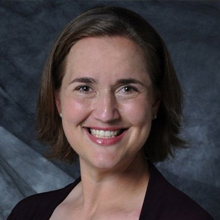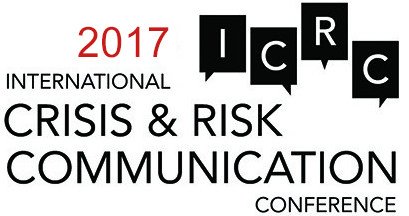
Assistant Professor
University of Louisville
United States
Dr. Karen Freberg is an assistant professor in Strategic Communications at the University of Louisville and also is an Adjunct Faculty member for West Virginia University in the Integrated Marketing Communications (IMC) Graduate Online program. In addition to this teaching experience, Freberg has presented at several U.S. and international research conferences, including ones in the Netherlands, Australia, Brazil, Greece, Italy, Spain, Turkey and China.
Freberg’s research has been published in several book chapters and in academic journals such as Public Relations Review, Teaching Public Relations, Journal of Contingency & Crisis Management, Journal of Strategic Security, Media Psychology Review, and Health Communication. She also serves on the editorial board for Psychology for Popular Media Culture and Case Studies in Strategic Communication (CSSC). Freberg also worked for Total Media in Cape Town, South Africa during the summer of 2007 with clients in the fashion and consumer industry.
Before coming to the University of Louisville, Freberg earned a PhD in Communication and Information at the University of Tennessee in May 2011, and a Master’s degree in Strategic Public Relations at the Annenberg School for Communication at the University of Southern California in August 2007. Freberg received her Bachelor’s of Science degree in Public Relations at the University of Florida in August 2005.
2014
Breakout session: Assess Perceptions of Crises Among Crisis Professionals: Exploration with the Situational Q-sort*
Crises are significant, disruptive events that feature a rapid onset. Crisis communicators need to know if messages spread online via social media will produce effects on receivers that are similar or different when compared to the effects of messages conveyed through more traditional mass media or official organizational web sites. To respond appropriately, researchers and practitioners need more concrete information about how crisis situations are perceived, how messages impact audiences, and how these influences map onto actual audience behaviors, such as compliance with a food recall message. The recently developed Riverside Situational Q-sort (RSQ; Sherman, Nave, & Funder, 2010; Funder et al., 2012) provides a promising tool for capturing nuanced differences in audience perceptions of a situation.
Previous data applying the RSQ to perceptions of a food recall message have been published in a proof-of-concept paper in the Journal of Contingencies and Crisis Management (Freberg, Saling, & Freberg, 2013). Results showed that a subset of situational attributes were perceived differently when a food recall message was presented via social media, traditional media, or organizational media. One of the important next steps in q-sort methodology is to establish an “expert theory” comprised of a prototype based on expert responses (c.f. Wink, 1991). Four crisis practitioners will complete RSQs for the food safety situation for each of the three media conditions. This will allow the researchers to conduct direct tests of the expert theory by comparing expert predictions to audience perceptions.
*MAJ Kristin Saling, Karen Freberg and Laura Freberg co-authored this paper. MAJ Kristin Saling and Karen Freberg will present this presentation.
2013
Breakout session: Commanding Influence: Social Media Command Centers Create Influence and Trust in a Crisis Situation*
Crisis communicators and their emerging media team must anticipate the communication needs and expectations that come with a crisis event offline and online across multiple platforms (computer, tablet and smartphone). Social media and social media command centers provide the pinnacle of networked communication and dialogue, relationship management and information and dissemination in digital and mobile environment. However, there is a gap in the literature in exploring the social media command centers that collect and interpret these findings in crisis communications. It is important to determine the proper design and function of the social media command centers that monitor, listen and evaluate the conversations and information surrounding the crisis situation.
As social media command centers continue to emerge, the vital functions and requirements they must meet have not been fully defined. What must a social media command center do to meet all the needs of the crisis communication team in order to engage conversations, monitor and listen during a crisis situation?
*MAJ Kristin Saling and Karen Freberg co-authored this paper. MAJ Kristin Saling and Karen Freberg co-presented this presentation.
2012
Breakout session: @Hurricanes Storm Through #socialmedia: A Case Study Addressing the Concerns of Uncertainty with Emerging Technology in a Crisis Situation


